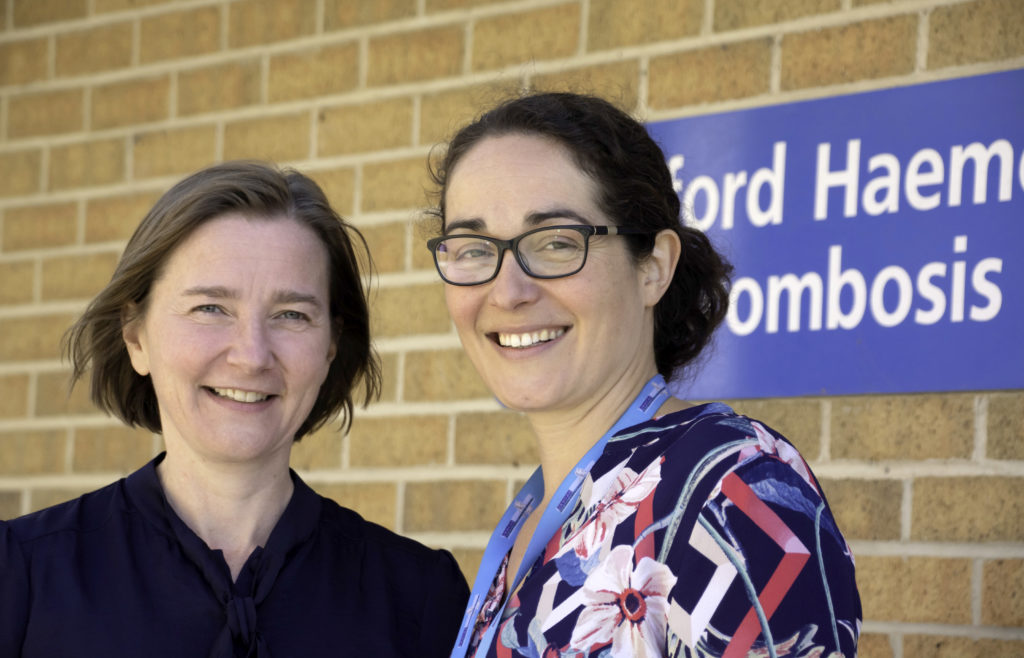Two consultant haematologists at the Oxford Haemophilia and Thrombosis Centre (OHTC), based at the Churchill Hospital, have been awarded funding for their research as part of a new national scheme.

Dr Nicola Curry and Dr Susie Shapiro were among the recipients of the new Clinical Academic Research Partnerships (CARPs), awarded by the Medical Research Council MRC. The awards have given a significant boost to bleeding and clotting research in Oxford.
The OHTC is the largest centre in the UK for bleeding and clotting disorders and has been building clinical research capability with support from the NIHR Oxford Biomedical Research Centre (BRC). The OHTC’s large patient base makes it ideally suited to supporting a research facility.
Dr Curry’s research will focus on bleeding in trauma. Trauma is the leading cause of death for people under the age of 44 worldwide, with uncontrolled bleeding leading to the majority of those deaths.
Trauma patients who develop a failure in their blood clotting system, called trauma coagulopathy, have much worse outcomes. Current therapies are limited. The clotting system acts to reduce blood loss on injury by a series of complex interactions between clotting proteins and the walls of blood vessels.
Dr Curry, working with Robin Choudhury, Professor of Cardiovascular Medicine at the University of Oxford and the Oxford BRC’s Cardiovascular Co-theme Lead, will investigate how the blood vessel wall influences clotting and develop a model experimental system to study these processes. This research will allow new targeted treatments to be developed for trauma bleeding.
Dr Shapiro will develop a research programme on polycythaemia, a cancer of the bone marrow and blood. Patients with polycythaemia are at increased risk of stroke and heart attack because of blood clots caused by too many blood cells being produced.
Working with Prof Adam Mead, the Oxford BRC’s Co-theme Lead for Haematology, in the MRC Weatherall Institute of Molecular Medicine, Dr Shapiro will study blood samples from patients on a large clinical trial of a novel polycythaemia drug.
She aims to understand the mechanisms of blood clotting in these patients and to predict the risk of those patients developing clots. Insights from this research will help in managing the risk of blood clotting to blood cancer patients and also to develop better targeted therapies.
Both of these projects will bring together scientists and clinicians who are leaders in their own subject area who, by combining their expertise, will improve our understanding of the balance between blood clotting and bleeding in different clinical contexts and improve outcomes for the many patients affected by these conditions.
In June, Dr Shapiro won an award from the Royal College of Pathologists for her work on improving the use of anti-blood clotting drugs in primary care in Oxfordshire.